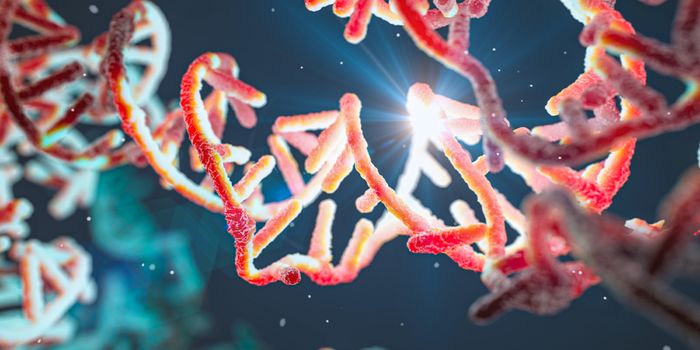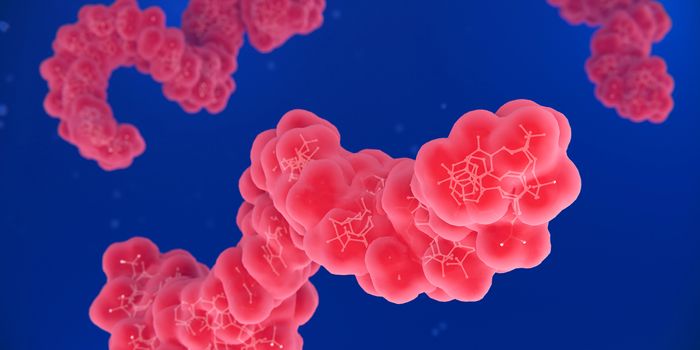Host Genetics Can Influence the Microbiome
The human microbiome is intimately connected to our health; the genes and proteins expressed by gut microbes can influence our physiology in many ways. Researchers have identified a variety of environmental factors that can impact the gut microbiome as well, like the people we live with, food we eat, or our mode of birth. It's been suggested that human genes have little if any affect on the gut microbiome. But new research has indicated otherwise.
In a study reported in Science, researchers used a baboon model to investigate the connections between host genes and the gut microbiome. The work indicated that the vast majority of microbial taxa in wild baboons have some degree of heritability. These estimates correlated positively with humans. The heritability was affected by environmental factors such as the season; during the dry season and when there's little variety in the diet, heritability was greater.
"In humans, research has shown that family members share a significant portion of microbes in their gut, but it's hard to answer if our microbiome is shaped more by nature, such as those we inherit from our family, or nurture, such as the similar diets, environments and behaviors families share," said lead author Laura Grieneisen, a postdoctoral fellow in the College of Biological Sciences at the University of Minnesota.
In this work, the researchers assessed the gut microbiomes of the model population by analyzing over 16,000 fecal samples from 585 baboons over the course of fourteen years. They used statistical models to test whether host traits like age, sex, family connections, time of year, and environmental conditions like season predicted traits in the microbiome.
Heritability was found to play a small but statistically significant role across the microbiome, and its influence was low, but consistent.
"Our results qualitatively change the field's perspective on the determinants of microbiome composition," said co-author Ran Blekhman, an associate professor in the College of Biological Sciences at the University of Minnesota. "From one in which the host genotype plays no role in the majority of microbiome taxa to one in which the host genotype nearly always plays a role. As a result, microbiome traits might evolve via natural selection on the host."
The researchers suggested that while the host genotype has a universal effect on the gut microbiome, the environment and host behaviors still have a much bigger influence.
More work will be needed to identify specific strains of microbes that are affected by the genetics of the host. There may be strains that are heritable and connected to a specific disorder, as well. "As a result, if there are microbes that are heritable and linked to health outcomes, it would allow us to better understand the genetic basis of these outcomes," said Grieneisen.
Sources: AAAS/Eurekalert! via University of Minnesota, Science









